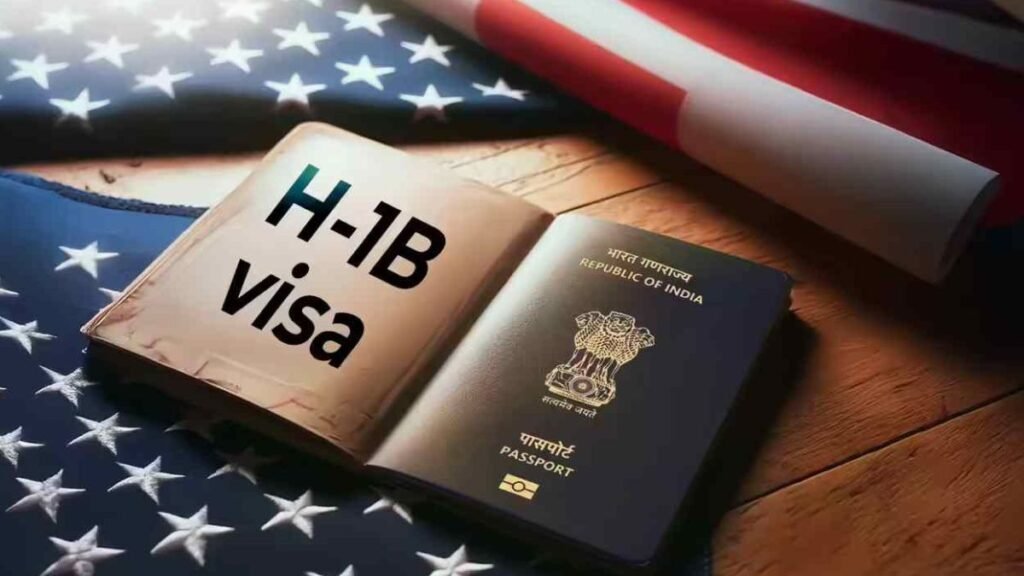The recent news about the H-1B visa fee hike in the United States created an immediate stir in the Indian IT industry. Initially, whispers about a $100,000 fee for H-1B visa applications sent shockwaves through boardrooms and analyst desks alike. But a recent clarification from the White House has now calmed some nerves, suggesting that the impact on Indian IT firms may not be as severe as first feared.
For many employees and executives, the fee sounded like a potential disruption that could impact hiring strategies, project deployments, and even margins. However, the White House made it clear that the H-1B visa fee hike applies only to initial visa petitions — not renewals, re-entries, or employees already working in the US. Karoline Leavitt, the White House press secretary, tweeted, “This is not an annual fee. It’s a one-time fee that applies only to the petition.”
Analysts Weigh In

Industry watchers and analysts were quick to break down what this means in practical terms. Pareekh Jain, founder of EIIRTrend, noted that the fee wouldn’t affect the existing workforce. “If renewals and current employees are unaffected, the status quo remains,” he said. Analysts also believe that companies can absorb the one-time H-1B visa fee hike for a few critical employees without causing major disruptions.
Piyush Pandey, an analyst at Centrum, added some context. “The fee will mostly hit those who plan to travel soon,” he explained. “For example, an employee traveling next month may see higher fees, but for most firms, the impact on margins is expected to be minor—maybe 50 to 100 basis points.”
Even Namratha Dharshan of ISG chimed in, noting that while existing operating models won’t change, future hires may require strategic planning. “If companies still need to hire in the US, they’ll have to evaluate costs carefully. But this is manageable,” she said.
Shifting H-1B Dependencies

The H-1B visa fee hike comes at a time when Indian IT firms are already reducing their reliance on US-based visas. Data shows that visa allocations for Tata Consultancy Services (TCS), Infosys, and Wipro have fallen sharply from 2022 to 2025 — TCS by nearly 45%, Infosys by over 70%, and Wipro by about 33%.
Also Read: Bengaluru Crime: Whitefield PG Incident Sparks Shock and Multiple FIRs
Current dependency on H-1B visas for North American operations ranges from 20% to 50% among these companies. Analysts say this indicates a strategic shift rather than a crisis. Companies are adjusting their workforce models, leveraging technology, automation, and offshoring to manage costs.
“Interestingly, even with this H-1B visa fee hike, firms are finding ways to stay agile,” Jain commented. “They’re not abandoning the program—they’re just making smarter choices.”
Industry Impact: Manageable but Uneven
UBS Global Research estimates that firms like Cognizant, which rely heavily on H-1B workers, could see a small margin dip of 100–150 basis points due to the fee. Accenture, with a lower reliance, would likely experience minimal impact. Staffing firms like ASGN and RHI could see secondary effects in the contractor market, which might influence Indian IT staffing operations as well.
Sandip Agarwal of Sowilo Investment Managers projected that if 10,000 new visas are issued under the fee, the top five Indian IT firms could face a combined $1 billion annual hit. “That’s around a 7% margin squeeze — but far less dramatic than the initial panic suggested,” he said.
Legal and Policy Questions
Even with the White House clarification, some analysts worry about the long-term legality of the H-1B visa fee hike. Phil Fersht, CEO of HFS Research, warned that the fee could face legal challenges. “The authority to set fees lies with USCIS through a cost-based process, not executive orders. Lawsuits are likely before the effective date,” he said.
Yet, some experts see a silver lining. Fersht added, “Even if challenged, this policy accelerates the industry’s shift toward automation, platformized services, and reduced reliance on H-1Bs.” In other words, it might push companies to innovate faster and rethink workforce planning.
Also Read: Adani Enterprises Share Price Gains as SEBI Clears Part of Hindenburg Allegations
Offshoring, Remittances, and Opportunities for India
The H-1B visa fee hike could also encourage US firms to offshore roles to India. Daniel Low of Kotchen & Low LLP observed that companies might prefer keeping high-skilled work in India rather than paying $100,000 per H-1B worker. This could reduce remittances temporarily but create more opportunities for Indian professionals domestically.
Guruprasad Srinivasan, CEO of Quess Corp, sees the fee as a potential defining moment for India. “With H-1B fees making on-site US roles costlier, more work will stay in India. This is a chance to retain talent, reverse brain drain, and build stronger careers locally,” he said.
Broader Implications for Talent Flows
The H-1B visa fee hike is sparking a wider debate about high-skill immigration and global talent flows. Hemant Mohapatra of Lightspeed Ventures noted that smaller firms may struggle, while bigger tech players could benefit. “Skilled workers might return to India sooner than expected, which could be both a challenge and an opportunity,” he explained.
Prashant Yadav of Amrop India emphasized that many roles can’t be easily replaced by US locals. “Both jobs and talent will likely move offshore. This policy may not harm Indian IT firms directly, but will change global workforce dynamics,” he said.
Taazanow.com- Click Here

